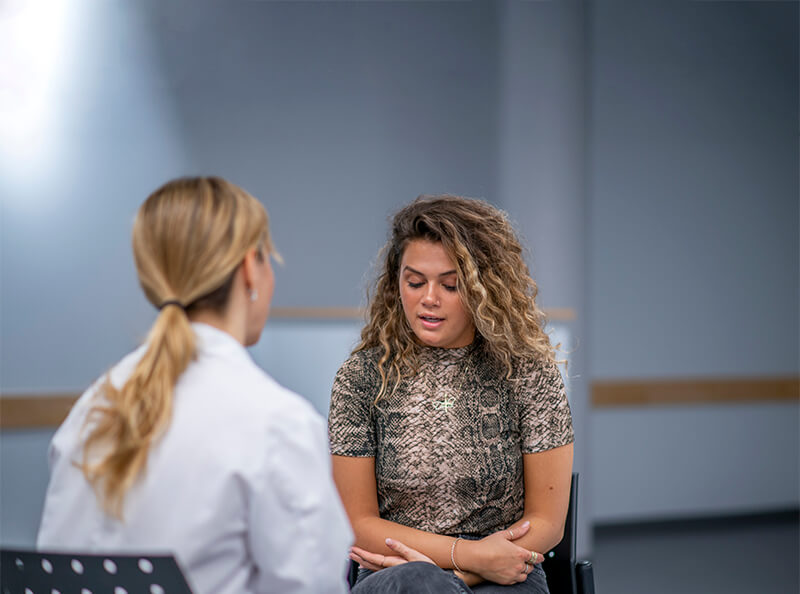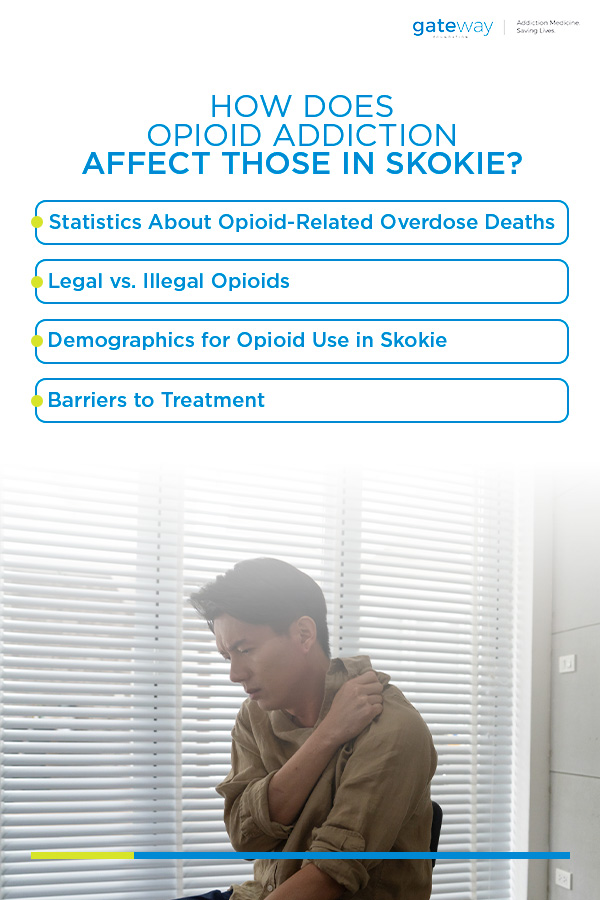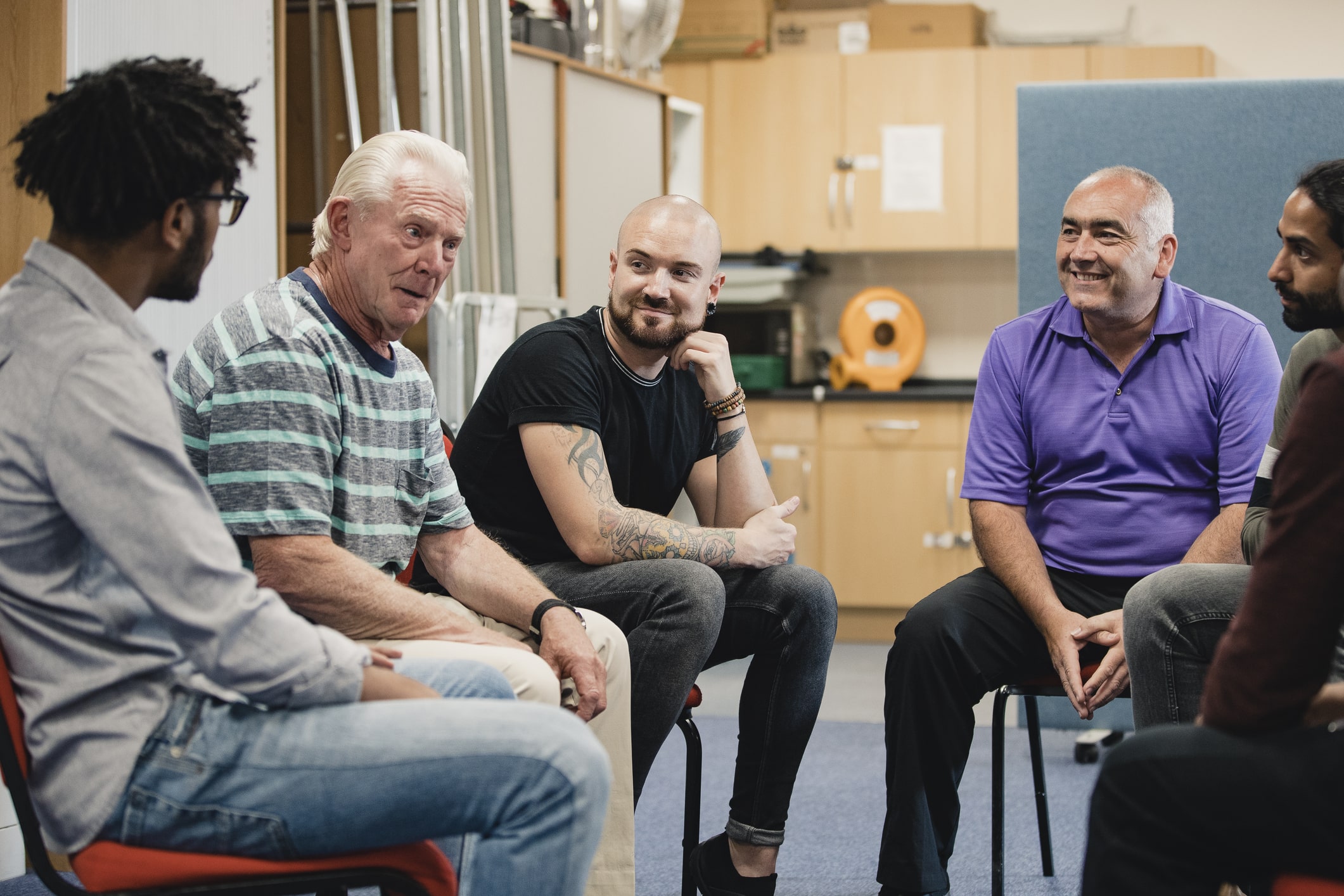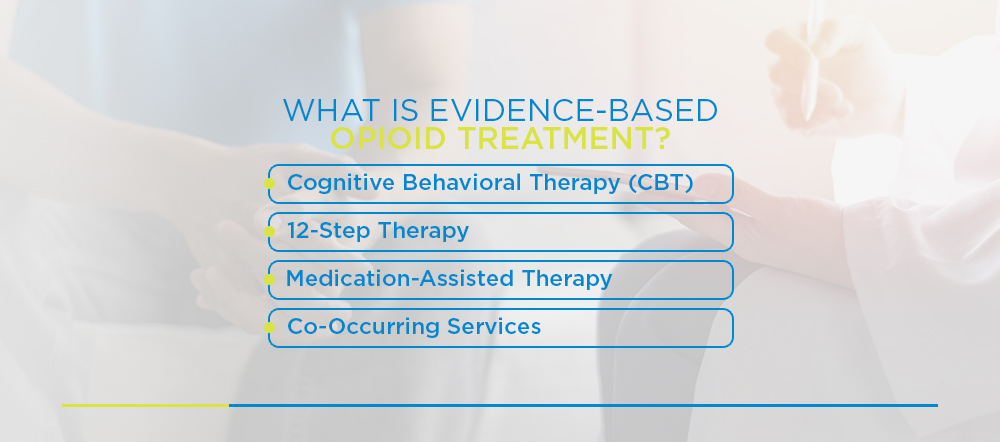
Opioids are a popular topic of conversation in the news nowadays — and with good reason. With the increasing epidemic leading to addiction, overdose and even death, it’s crucial to find effective ways to treat opioid addiction. People who find themselves living with an opioid use disorder and are ready to seek help should know what’s in store for them during the treatment process. Those who may require treatment but are unable to seek treatment need to understand both the importance of getting help as well as the assistance that may be available for them to help their recovery.

Opioids are a type of drug often used as painkillers. They’re prescribed to manage intense pain while allowing the user to experience a feeling of euphoria. While prescription opioids were initially for severe pain, doctors eventually began prescribing them for everyday pain as well, such as backaches. This was before we fully understood the extent of the effects of opioids.
While medical professionals are working on alternate ways to treat pain to reduce opioid prescriptions, the opioid epidemic has spread much farther. According to the Centers for Disease Control and Prevention (CDC), there were 191 million opioid prescriptions dispensed to patients in the U.S. in 2017 alone.

Anyone can become addicted to opioids. Even patients who take opioids according to their doctor’s instructions will feel symptoms of withdrawal and cravings once the course of the medication is complete. The physical dependence on opioids can begin weeks or even days after the course of medication begins, and physical dependence can often lead to addiction.
Physical dependence, coupled with the feeling of euphoria, is the main reason why opioids are abused, as people become addicted to that feeling. Prescription opioids are abused when people take more than they’re supposed to, go from doctor to doctor to get more prescriptions to “stock up” their supply or when they turn to illicit opioids to satisfy their cravings. More than 60% of overdose deaths in the U.S. are caused by opioids — and that includes both legal and illegal opioids. In Cook County, heroin was responsible for 68% of opioid-related overdose deaths, while opioid-based painkillers were responsible for 20%.

When people become dependent or addicted to legal opioids, and their prescription runs out, they will often turn to Illegal opioids, like heroin. As opioids became more popular and synthetic opioids were created, illicit — or “street” — versions also started gaining popularity. Fentanyl is a popular synthetic opioid, which is 50 to 100 times more potent than morphine.
The illicit version of fentanyl is usually even more potent thanks to the fact that it’s often made with heroin or even cocaine. Those additions also end up making it far more dangerous, which, in turn, leads to more overdose deaths caused by synthetic opioids.

The demographics of people who develop opioid addictions vary based on factors like age and gender. In Cook County, there were twice as many men who died from an opioid-related overdose death than women. And the general age groups for opioid-related overdose deaths were people between the ages of 25 and 34. Fortunately, children and youth — those aged 15 to 24 — had the lowest rate of opioid overdose deaths. Nevertheless, the bottom line remains that people continue to overdose and even die from opioid addictions, making it a serious public health problem for the country.

Addiction takes a toll on the user as well as everyone around them. Often, someone with an addiction is so focused on getting their next fix that they abandon their personal and professional responsibilities — sometimes even losing their job or getting kicked out of school. Addiction is a disease, and it’s not something a person can get through alone. In fact, a sign that you may need rehabilitation is if you’ve tried to quit the substance yourself and were unable to succeed.
Many people also avoid seeking professional rehabilitation for one or more reasons, including the inability to afford treatment or the unwillingness to leave their jobs and family to invest the necessary time into recovery. The continued stigma about opioid addictions could be another barrier, based on where you live and the people with whom you surround yourself. Medical professionals are cognizant of the problem and are working to find solutions to overcome these barriers, and until they do, there’s always a reason to put off treatment for addiction, but it’s seldom in anyone’s best interest — least of all the person living with the addiction.
Addiction treatment can only truly work if the person with the addiction is willing to put in the effort to recover. Unlike other substance rehabilitation programs, rehab alone is not as effective for opioid use disorder, so if you’re seeking opioid addiction treatment in Skokie, Illinois, make sure you’re getting the type of help you need.

As its name suggests, evidence-based treatments — sometimes referred to as science-based treatments — are those with solid scientific data to back them up. In research-based treatments, patients are receiving therapies based on previous tests and experiments. In evidence-based treatments, patients are receiving therapies based on the proven success of previous patients.
Since every person is unique, these methods of treatment are more like guidelines than strictly structured plans. In opioid addictions, evidence shows that medication should be the first line of treatment on the road to recovery. Medication may seem counterproductive to recover from an addiction to medicine, but the specific medication used in MAT targets some of the parts of opioid recovery that can be the most difficult to treat, such as:
Withdrawal is a well-known result of quitting any drug that you’ve been using chronically. Withdrawal symptoms can be mild to severe, and in the case of opioid withdrawal, it can present itself as sleeplessness, irritation, anxiety, depression or one or more of many other physical and psychological symptoms. Medications used to aid recovery help to dampen those unpleasant feelings, allowing the patient to be a little more comfortable and less tempted to return to drug use to make the symptoms go away.
Recovery is a long road, and it can be a difficult one, as well, which is why staying in treatment is both extremely important and can be very hard. Certain medications used in MAT are designed to act slowly, allowing the patient to gradually get used to living without the drug by producing a calming effect on the body and mind. Without the distraction of worrying about withdrawal or where to get their next fix, the patient is able to focus on counseling and therapies instead.
There’s no shame in relapsing — it can be a natural part of recovery for some people. But ideally, pinpointing the stressors or triggers that lead the patient to use drugs can help both the patient and the therapist work on ways to avoid these stressors, thus reducing the likelihood of a relapse.
When it comes to opioid addiction, there are several medications used in MAT, and each has its own set of pros and cons. As we mentioned, rehabilitation isn’t a one-size-fits-all cure, so what may work for one person may be ineffective for another. Many of these medications act as an opioid agonist, which mean they prevent cravings and reduce withdrawal symptoms. Three of the more popular medications are:
Medical professionals have been using methadone to treat heroin addiction since the 1930s, and today, it continues to be an effective medication for opioid addiction when used in conjunction with behavioral therapies. It’s taken orally and is a long-acting medicine that both reduces withdrawal symptoms while suppressing cravings for other opioids altogether.
Like methadone, buprenorphine is used to help patients have a medically supervised withdrawal. Buprenorphine is administered once the patient begins experiencing withdrawal symptoms, and it’s considered most effective when used with naloxone, an opioid antagonist — meaning it counteracts the effects of an opioid.
Used for both opioid addiction as well as alcohol addiction, naltrexone is a receptor antagonist, which means that it successfully blocks the opiate receptor activity by reducing the positive effects of the opioid.
New research reveals that medical professionals are working on treatments for physical dependence, even if it doesn’t evolve into an addiction. Medications that block the euphoric effects of opioids are in the works and may potentially be used in conjunction with other opioid addiction treatments or simply as more options for recovery.
However, it’s crucial to note that while the medication is recommended as part of an effective recovery plan, it is only truly effective when administered in conjunction with behavioral therapies. Recovering from an opioid addiction can be a long road and requires both the mind and the physical body to be treated in tandem. Whole-person treatments are best when treating opioid addiction because they consider the patient’s life and health outside of their addiction and use that information to prepare a well-curated plan for their successful recovery.
Evidence-based treatments in a comfortable and compassionate environment are the goal at Gateway Foundation. With more than 50 years of experience caring for patients and helping them reclaim their lives, we’re confident in our expertise.
Our opioid addiction treatments help patients ease into recovery with medically assisted withdrawals, inpatient and outpatient treatment services, as well as assistance with aftercare — which includes access to 12-step meetings, sober living access and additional outpatient counseling.
With multiple locations in Illinois, Gateway is convenient, compassionate and provides curated treatment for every patient. Get in touch to schedule your first appointment by calling 877-352-9992 or by filling out our online form.